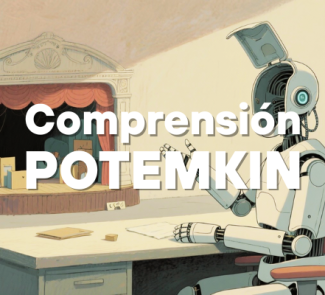Adaptive learning software evaluates students during the learning process, replacing exams as the definitive method of evaluation
According to disruptive-technology researcher Julia Freeland, competence-based adaptive learning software could, in the future, mark the end of academic exams as a method of learning and evaluation of student knowledge. For Freeland, specific software can be used to evaluate the knowledge acquired during the learning process much more objectively, eliminating the subjectivity of the multiple factors that influence a student when facing a final exam.
Although it’s a little late for some of us, it looks like kids are going to have it much easier when evaluating their knowledge thanks to the algorithms in adaptive learning software. In this regard, Freeland says that the current system of knowledge evaluation, set based on a rigid academic calendar of exams, is not the ideal way to evaluate the knowledge acquired by the students.

This model of learning based on artificial intelligence software technology, takes advantage of the existing channels of information and the new online training environments to evaluate students from the very start, continually, progressively and without having to wait for the tedious final exam. Thanks to online training, students are evaluated individually in real time at the exact moment that they are working with the educational material.
But competence-based learning software requires monitoring the daily activity of the student. To do this, the programme records the pages visited, the texts and references consulted, or the videos viewed in each subject, to compare them with the results of the different tests that students must complete to move onto the next level. In short, this method tries to check academic performance based on the objectives achieved by the student, according to an optimum level of comprehension determined by the software for each level of the academic programme.
This ground-breaking software is being used with good results in schools and universities in the US, such as the Virtual Learning Academy Charter School in New Hampshire. Arizona State University has also implemented competence-based learning software in some of its classes, with results that support the effectiveness of this method of learning.

Technological advances in recent years have made this type of approach possible and though it is still in the experimental phase, everything seems to indicate that it will eventually consolidate itself as a method to replace the existing system of exams. In this sense, adaptive learning software companies like Knewton have made it possible to use mathematical algorithms of artificial intelligence software to help students take exams based on their academic evolution, and not cramming knowledge in the hours prior to the exam.
David Liu, the head of the company, says that this software isn’t just improving evaluation methods through mouse clicks; it’s also reinforcing the understanding of the material in students with difficulties, by proposing a rate of learning that is adapted to their academic evolution. An important aspect that isn’t evaluated with the rigid yardstick of the existing system of exams.
Images | pixabay and wikipedia









